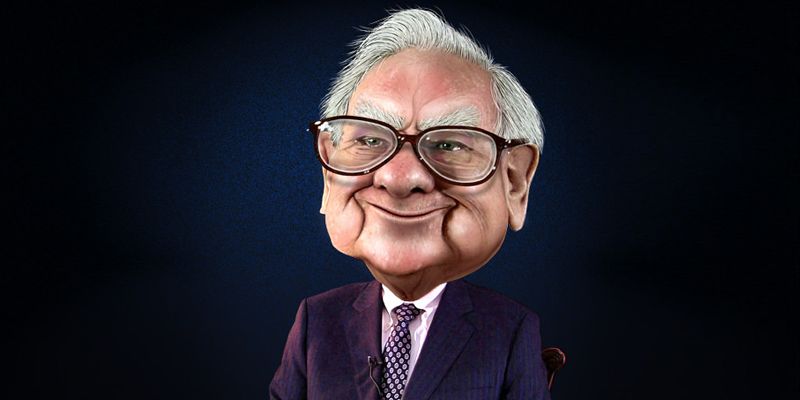Business lessons from the ‘Oracle of Omaha’, Warren Buffett
Warren Buffett, the billionaire entrepreneur who is the second richest man in the world, the journey to the limelight happened a bit differently. While entrepreneurial icons like Bill Gates and Mark Zuckerberg have often spoken about the need to be versatile, impulsive and risk-driven, Buffett’s outlook to making a breakthrough peters more towards playing it safe.

Image: Shutterstock
At a net worth of $75.6 billion, Buffett’s entrepreneurial style and management system is possibly something we should be paying attention to. At the helm of Berkshire Hathaway, where he is the chairman and continues to hold the largest shareholder since 1970, Buffett has witnessed the global recession, the rise and fall of many stronghold businesses and kept to pace with the constantly changing market. His greatest secret to surviving this all? To be resilient and focused and most importantly, to keep head of what you are saying yes to - at all times.
For all those who idolize the octogenarian and for even those who don’t- Warren Buffett is a businessman who knows what he’s talking about. So here are some of his greatest tried and tested business tips to those looking to build, compete and outshine in the market.
- “Games are won by players who focus on the playing field (long term) — not by those whose eyes are glued to the scoreboard (short term)."In one of his famous public business letters, Buffett spoke about how short-sightedness is the greatest mistake that entrepreneurs often make. Being distracted with short-term victories and losing focus of the long-term benefits or consequences is the folly of many entrepreneurs. We’ve all heard about companies that dazzle the market for a while but then fade into obscurity, because they couldn’t keep up with the tides of changing market pressures and trends.
To this end, Buffett’s advice to all those looking to build or expand their business - is to plan and strategize for the long-term, without getting blind-sided by a few immediate successes.
- “Rule No. 1: Never lose money. Rule No. 2: Never forget rule No. 1.“While risk-taking is an almost essential part of successful entrepreneurship, but more often than not you’ll find yourself having to drive a hard gamble. The trick is to know when to take it. Entrepreneurs are often encouraged to jump the gun and work on impulse- but for Buffett, the trick is to go by instinct.
Despite the many opportunities he may have missed, Buffett has always stuck by making decisions as per his instinct and set-system. This has helped him avoid the fate met by many one hit wonders, who based on impulse lost money on risky ventures. Buffett’s advice to entrepreneurs? The only risks you should be taking are well-calculated and informed ones.
- “It takes 20 years to build a reputation and five minutes to ruin it. If you think about that, you'll do things differently.”Warren Buffett has always been very particular about the reputation that both he and his company maintains. Even when the company has slipped up on occasions, it is Buffett who single-handedly takes on the responsibility, even when it wasn’t his mess to clean up. As a veteran he understands the value of a reputation and how vulnerable it is in times of adversity. Hence, as he has often pledged, it is imperative for a company's founder(s) and its employees to maintain the company's integrity, cause all you need is one stone to shatter it.
- “Predicting rain doesn't count. Building arks does.”Companies often spend all their time and resources into gauging the palpable market changes and what it could mean to for their businesses. For Buffett, the call has always been about the bite and not the bark. In simpler terms, Buffett’s advice to entrepreneurs and startups everywhere is to prepare strategies for every kind of scenario. So that if push comes to shove, or even if it doesn’t - they are prepared to handle the worst.
- “I don't look to jump over seven-foot bars: I look around for one-foot bars that I can step over.”Adding on to the earlier mentioned point about taking calculated risks, Buffett confesses that his secret to success comes from making the most of the smallest and simplest opportunities that come his way. Instead of looking to jump high over the hurdle. In the quest of making the ultimate deals, entrepreneurs often lose sight of the smaller but more long-lasting ones that they overlook along the way.
- "It is not necessary to do extraordinary things to get extraordinary results."For Buffett, you don’t have to become the creator of the next Facebook, or decipher the ultimate code 42 in order to receive critical acclaim in the chaos of the startup sphere. Sometimes, the simplest idea can make you the next Bill Gates, only if you truly apply yourself and stay dedicated to the same.
- "It's better to hang out with people better than you. Pick out associates whose behavior is better than yours and you'll drift in that direction."Buffett and his right-hand man, Charlie Munger, have often spoken about the need to empower those you work with, so that they form the different facets of a well-oiled machine looking to create, innovate and concur. In a way, Buffett considers himself a contractor, hired to advice on career decisions, that will help individuals peak in the longer-run. When it comes to offering incentives, to his employees, Buffett follows a simpler and more effective process of keeping their goals ‘tailored to the economics’ of the business, so that they can be ‘directly related to the daily activities of plan participants’. He also wholeheartedly agrees that the reason his company has reached its pinnacle, is due to the relentless and united efforts of his employees, who adhere to the same goals.











